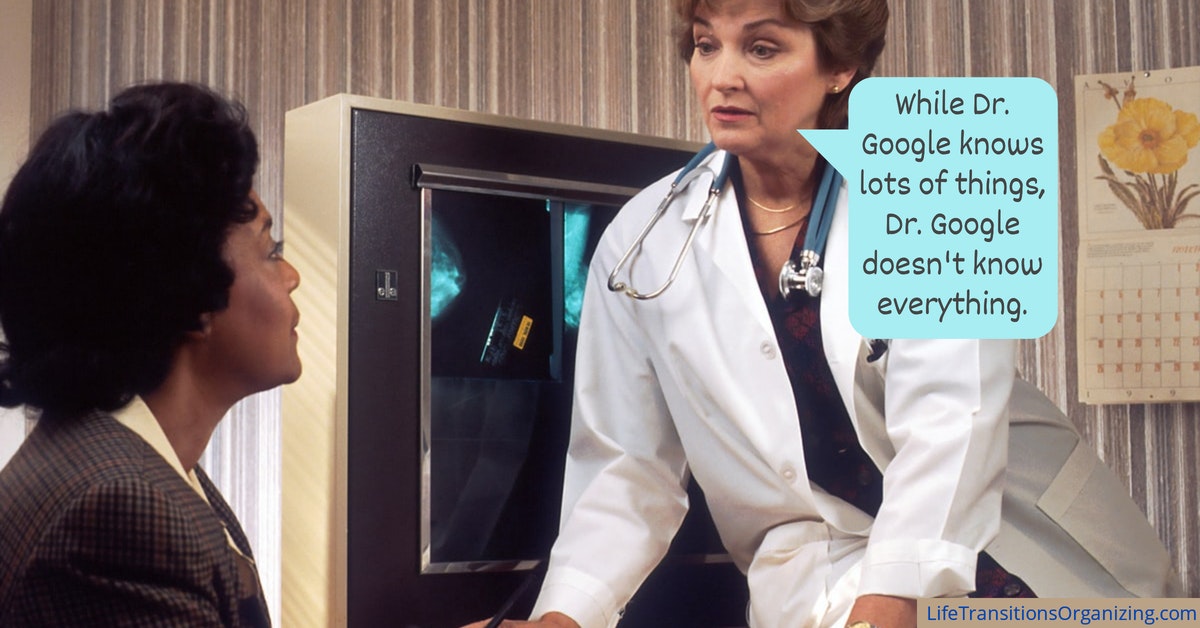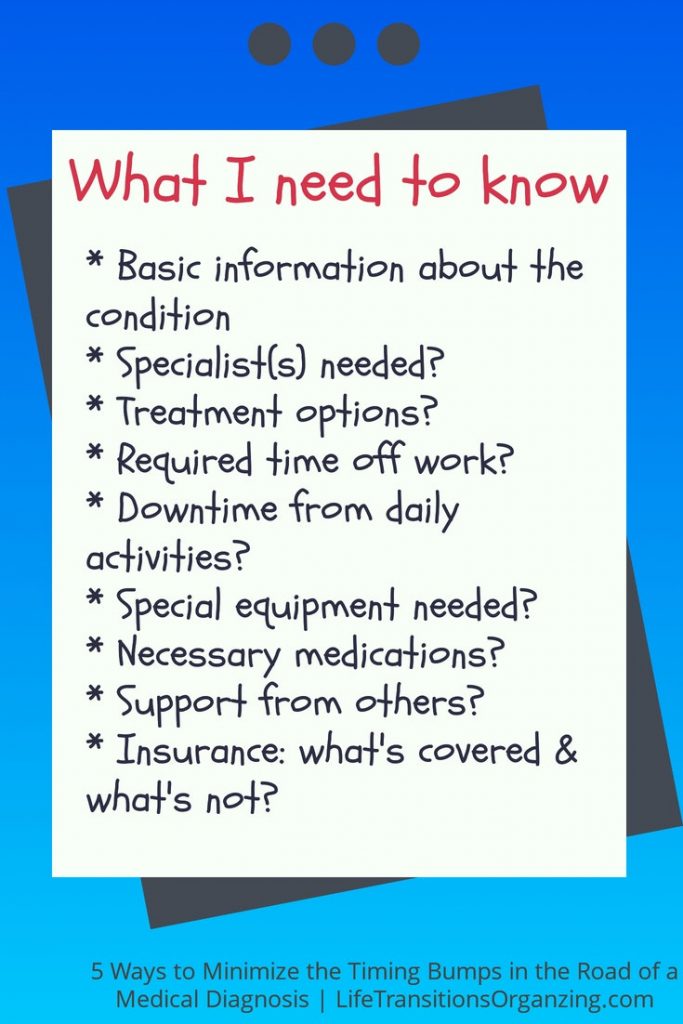
5 Ways to Minimize the Timing Bumps in the Road of a Medical Diagnosis
Broken limb. COVID-19. Surgery. Comprehensive battery of medical tests.
Health-related conditions, even more temporary ones, tend to wreck havoc on our schedules. The stay-at-home orders during the COVID-19 (global pandemic as I write) means people are working and living at home to an extent never seen before. A broken limb or surgery hinder our ability to complete tasks in the same amount of time as usual. Cancer requires additional doctor appointments and treatments. Information needs to be organized. Medicine should be taken at certain times and in specific conditions.
Yet for some reason, we tend to see a medical condition as a bump  in the road: we drive over it and continue, unfazed, down the street.
in the road: we drive over it and continue, unfazed, down the street.
Instead, medical diagnoses are really multiple timing bumps in the road in which each bump is a different size. It’s hard to go a consistent speed because the bumps are different distances apart, and sometimes you can’t even see the end of the road!
What can you do to minimize the timing bumps in the road of a health-related condition?
Decide how to track the new information. Regardless of your diagnosis, you’ll get new information. It will come from web searches, magazines, books, doctors, friends, and more. You will get it at different times and in a variety of places. So your method of information gathering needs to be portable and easily accessible.
Example: Between 1981 (not a typo!) and 2013, I had three knee surgeries. So I’d known for years that I would need a knee replacement. By the time I was able to get one, I didn’t need information about the actual surgery. However, I needed to know about things like what medical equipment I would need, length of time I’d be unable to drive, scheduling physical therapy, length of hospital stay, etc. I decided that a physical notebook was the best method for me to curate the data.
Write down what you need to know. With any new medical diagnosis, there is a lot you don’t know. However, writing a list of what you know you want to know, gives insight about the impact to your schedule. Here’s a sample list:

Select your sources of information (besides your doctor). I know you’re going to browse the web for information about your health-related condition. However, it’s best to consider which websites have the most reputable information and confine your search there.
Friends (or their connections) can be a great source of information. When I had a double-mastectomy, there were multiple choices for implants. After some web research, I sent out a brief email to a group of business women of which I’m part. Yes, I know this wasn’t a business-related topic, however, I knew they would understand. In the email I asked for women who would be willing to talk about their experience. I got several responses, including one who was a friend of a member of my group. My subsequent conversations gave me valuable information that I couldn’t have gotten on the web. The only way I can repay their kindness is to pay it forward.
In the case of my knee, I attended an optional class about knee replacements at the orthopedic practice. I took it as soon as I could rather than waiting until close to the surgery. This gave me time to process the information and gather the required medical supplies. I also took the required knee replacement class at the hospital several weeks prior to the surgery, again to gather as much information as possible. I had gained some knowledge from providing aftercare when my Mom had each of her knees replaced.
Picture this: I take my Mom to all of her doctor appointments. Having been healthy most of her life, she educates herself on every ache and pain. She takes this information to her doctor. One time Mom was about halfway through her list, the doctor (who has the patience of a saint!) said, “While Dr. Google knows lots of things, Dr. Google doesn’t know everything.”
 Schedule time in your calendar. Your schedule will be impacted regardless of the type or length of your medical condition!
Schedule time in your calendar. Your schedule will be impacted regardless of the type or length of your medical condition!
Here are just a few ways:
- Doctor appointments, along with drive and wait time
- Lab work, including x-rays, scans, and biopsies
- Treatments (surgery, cast removal, physical or occupational therapy, chemo, radiation)
- Recovery (time in which you are unable to do all or some of your regular activities)
And…the research! I strongly suggest putting a limit on the amount of time you spend gathering information. You can do this by limiting the number of websites you search, allot a specific number of hours you search, or setting a deadline by which the research will be complete.
Re-evaluate time commitments as get each new piece of information. Things change. The drive to appointments varies by time of day (rush hour or not). A certain doctor always runs late, so you either plan extra time for the appointment or you try to schedule the first appointment of the day. Surgery day or time is delayed. You need an additional test. You recover faster (or slower) than anticipated.
Example: when I finished the painkillers prescribed at the hospital, I discovered that getting more wasn’t just a matter of the doctor calling in a prescription. I had to submit the request via phone or web form on one of the days the doctor was at that specific location. This particular prescription had to be picked up from the orthopedist and taken to the pharmacy. Someone had to do this for me since I couldn’t drive. And it had to be picked up from the office during weekday working hours. If I took the maximum amount of medicine permitted, the prescription lasted less than 7 days. There were lots of “moving parts” I had to take into account…or I might be left in pain.
Nobody wants to have a health-related condition. However, ignoring one doesn’t make it go away. Believe me, I’ve tried!
Since the situation will impact your time, it’s best to learn ways to minimize the impact to your schedule. If you’d like additional strategies, receive The Top 10 Ways to Manage Your Schedule During Life Transitions for free when you sign up* for our digital Life Transitions Organizing Bulletin. Unsubscribe at any time.
*While we’re fixing a technology issue, please send an email to admin@LifeTransitionsOrganizing.com Simply put Send me The Top 10 Ways to Manage Your Schedule During Life Transitions in the Subject Line and hit send!
Tag:acute, ADHD, anxiety, autoimmune disease, brain based disorders, calendar, depression, health, information, life transitions, Life Transitions Organizing, Life Transitions Resources, life-disrupting situation, medical, productivity and organizing professional, professional organizer, schedule, surgery, TBI, time, Transition Success Program



